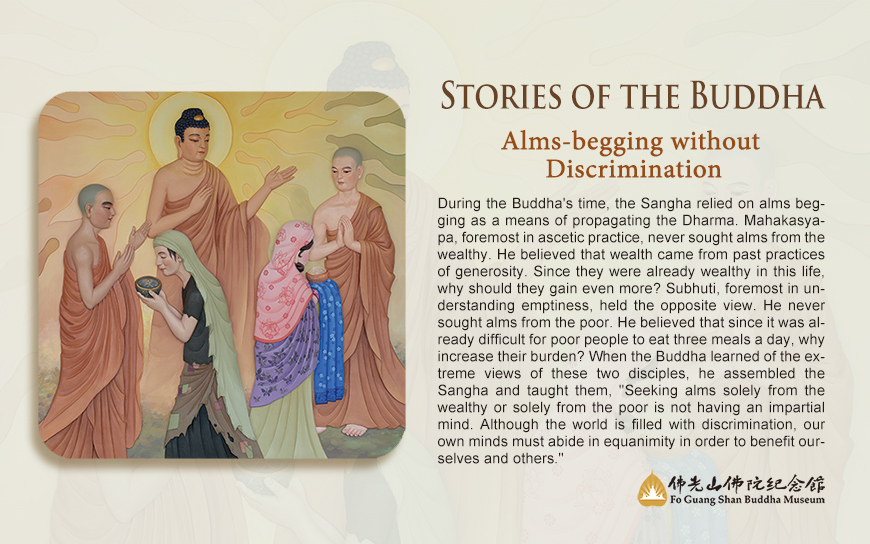[Listen to audio]

During the Buddha’s time, the Sangha relied on alms-begging as a means of propagating the Dharma. Mahakasyapa, foremost in ascetic practice, never sought alms from the wealthy. He believed that wealth came from past practice of generosity. Since they were already wealthy in this life, why should they gain even more? Subhuti, foremost in understanding emptiness, held the opposite view. He never sought alms from the poor. He believed that since it was already difficult for poor people to eat three meals a day, why increase their burden? When the Buddha learned of the extreme views of these two disciples, he assembled the Sangha and taught them, “Seeking alms solely from the wealthy or solely from the poor is not having an impartial mind. Although the world is filled with discrimination, our own mind must abide in equanimity in order to benefit ourselves and others.”